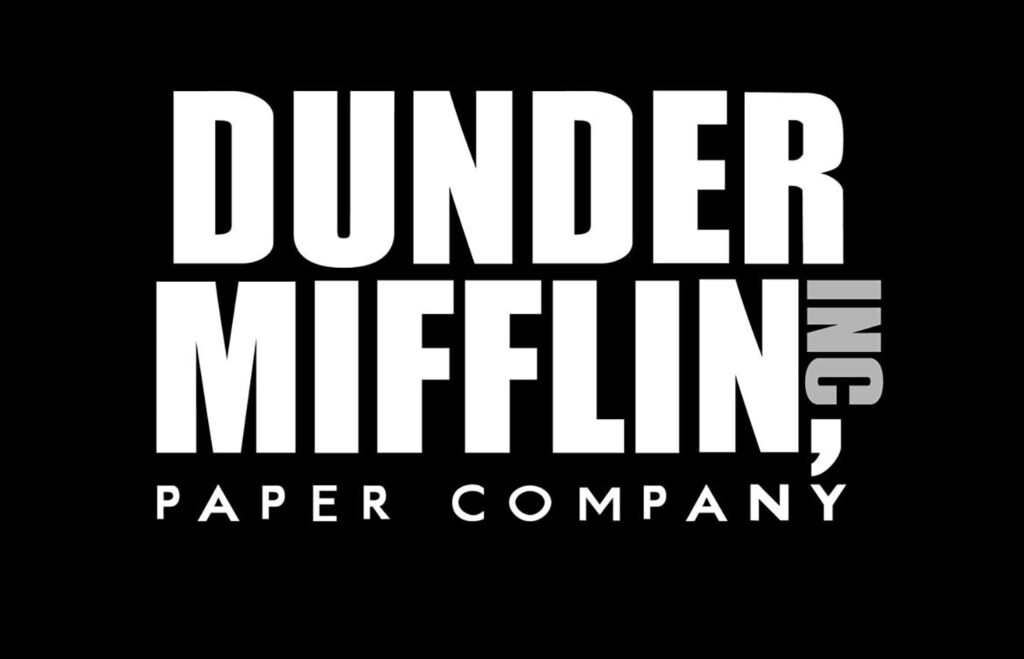It would be almost paradoxical for SaaS (Software as a Service) and subscription-based businesses to turn to the employees of Dunder Mifflin’s Scranton branch for lessons on how to thrive in the world of subscription commerce.
After all, employees of the fictionalized paper supply company from the popular TV sitcom, The Office, displayed highly unprofessional conduct that wouldn’t be tolerated in most modern workplaces. The behaviors exhibited ranged from time theft, office romances, and elaborate pranks to highly inappropriate conduct from management. The Scranton branch was surely any CEO’s nightmare from a human resource perspective.
However, despite all the madness and workplace hijinks, the Scranton team consistently remained Dunder Mifflin’s highest performing branch throughout The Office’s 8-year run. It continued to thrive as office supply chains like Staples monopolized the market.
Fictional Dunder Mifflin CFO David Wallace even once described the Scranton team as “the only thing about this company that works.”
If real life SaaS and other subscription-based businesses look past all the dysfunction of The Office, there are possibly some valuable lessons that can be applied to any department within your company, from billing and sales to customer service.
1. The importance of nurturing customer relationships
In a traditional business model that focuses on one-time sales, maintaining a relationship with customers after the sale is made is not typically necessary. But in the subscription model, where products or services are delivered on an ongoing basis, nurturing relationships throughout the entire customer life-cycle is crucial. Relationships ensure your business retains these clients.
The folks over at Dunder Mifflin were well aware of the importance of positive customer relationships. This fact is likely one of the main reasons the company managed to hold onto a lot of its clients when the office supply industry moved to big box chains.
Regional Manager Michael Scott valued healthy client relationships more than any other character on the show. While most people associate this character with buffoonery and lack of managerial skills, Michael was actually one of Dunder Mifflin’s top salesmen, and for good reason.
In the episode, ‘The Client,’ Michael and Vice President of Sales, Jan Levinson-Gould, meet with a prospective client whose business could save Dunder Mifflin from having to downsize. Rather than getting straight to business and trying to seal the deal, Michael builds a rapport with the client and spends several hours forming a connection and getting to know him on a personal level.

As Michael would later say, sales are about people. His character doesn’t look at a client like a puzzle that needs to be solved. Rather than focusing on landing the sale, he builds a relationship with the client first, which ensures that the customer will stick around for the long haul.
A modern recurring billing platform can help you cement a better relationship with your customers. Such a platform eliminates invoicing errors and gives customers the freedom to change their own preferences, see their invoices, and make payments. Automation improves communication between a business and its clients via automated email notifications sent when payments are received, when payments are late, and other timely communications. Of course some of our best practices on reducing churn rates will be of immense value here.
Switching to a complete subscription management and recurring billing platform will help improve customer relationships and automate manually repetitive and error-prone processes.
2. Your business will suffer by not embracing technology
Technology is constantly evolving. The only way for any business to succeed, especially in the world of subscription commerce, is to adopt new technological advancements to improve efficiencies and the customer experience.
The folks over at Dunder Mifflin learned the importance of technology the hard way in season four of The Office. This was when the Scranton branch started losing customers to big corporations like OfficeMax due to lower prices and a simplified online ordering process. Dunder Mifflin responded by launching its own web platform called ‘Dunder Mifflin Infinity’ but Michael fervently opposed the change.

In an attempt to prove that personal connections trump technology, Michael and salesman Dwight Schrute visited several former clients and tried to woo them back with gift baskets. Their efforts failed, however, as every client they visited refused to consider returning to Dunder Mifflin, citing their competitor’s lower prices and easy-to-use website.
Most companies using the subscription billing model will start out using a manual system for their recurring billing. But as you scale your business, manual billing processes become incredibly complicated to manage. At this time accurate invoicing, payments management, and revenue recognition will be nearly impossible to do manually.
Scaling is exciting, but at the same time, it’s critical to be able to support newly acquired businesses while keeping current customers happy. When you get to this point, your business should seriously consider switching to an automated recurring billing platform.
Billing automation will streamline your invoicing process, eliminate manual billing errors, and reduce revenue leakage.
A comprehensive subscription management and recurring billing platform also gives businesses the tools to deliver new products and services that can be brought to market much faster, allowing you to focus on driving growth.
Manual processes, on the other hand, will only hold you back and cost your business money.
As our CEO Tyler Eyamie says, “The needs of most subscription businesses and their customers are beyond the capacity of traditional legacy systems.”
3. Give a little to get a lot in return
In season five of The Office, Michael came up with the idea to plant 5 Willy Wonka-style ‘golden tickets’ offering 10% off discounts for one year in boxes of paper delivered Dunder Mifflin customers. The plan backfired, though, when all five of the golden tickets end up going to one of their biggest clients. That client was then owed a 50% discount for the entire year.
This discount meant the company would have lost out on a huge amount of revenue; however, the client was so impressed by the gesture that they decided to make Dunder Mifflin their exclusive supplier for all their office supply needs.
For any subscription-based business, discounting your products or services can be a great way to generate sales and help attract new customers. It can even help prevent late payments from re-occurring.

Additionally, providing your customers with an incentive to pay their invoice on time, or even early, is a great way to push late paying customers in the right direction. Whether it’s shaving a small amount off a customer’s invoice or extending them a credit, offering a valuable incentive can help ensure timely payments.
4. Two heads are better than one
In any business, different departments working together in a solely professional manner is crucial. This collaboration empowers information sharing between departments and can help strengthen the health of the business.
The Office, however, took the concept of symbiotic relationships a little too far at times as several different characters were constantly involved in romantic entanglements. However, the episode “Business Trip” provides a great example of (non-romantic) collaboration between departments.
In the episode, Michael has to travel to Canada to meet a prospective client with salesman Andy Bernard, but ends up bringing his “numbers guy” accountant Oscar Martinez along.
The reasoning for Oscar’s presence on the trip is never elaborated on, but in a real-life subscription-based business, it’s important for the billing department to work with the marketing and sales teams.
It may be critical to relay important customer information around billing and payments to help better direct sales and marketing efforts. Sales and marketing departments can also work closely with the billing team to leverage revenue opportunities like subscription renewals.

With the increasing acceleration towards the recurring billing model, digital disruption, and ever-demanding customer needs, the necessity for automated recurring billing platforms continue to surge. In fact, one recent report estimates that the 5-year total available market for subscription management and recurring billing software will exceed $102 billion. Meanwhile, the weaknesses of legacy systems and manual processes are becoming increasingly evident.
Automating your recurring billing and subscription management is crucial if your subscription-based business is looking to scale and maintain a competitive advantage. Doing so streamlines your billing process, eliminates invoicing errors, and improves customer satisfaction by enabling clients to self-manage and self-provision their services. This allows for greater transparency and empowers your customers.
Whether or not the writers of The Office intended it, the long-running sitcom had some teachable moments when you look past the Hollywood-influenced, hilarious workplace antics. Agree?
“‘You miss 100 percent of the shots you don’t take’- Wayne Gretzky”-Michael Scott.









